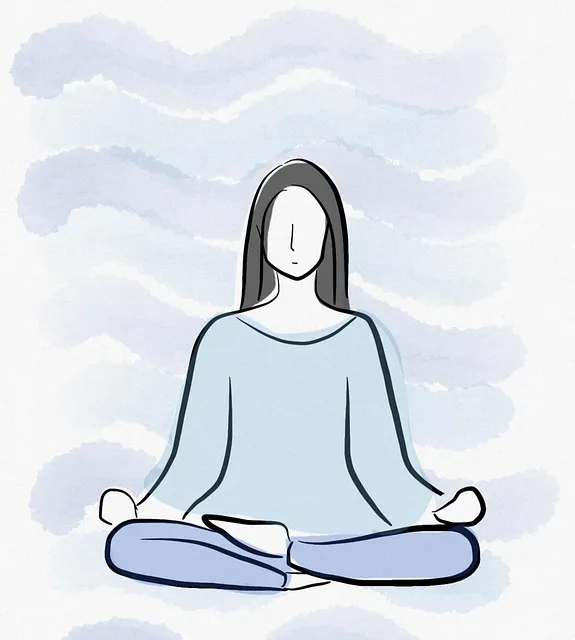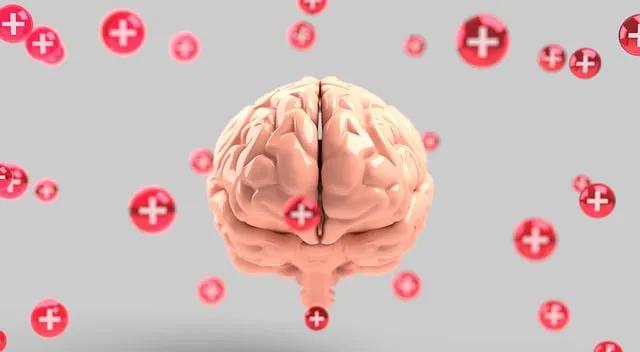Mental wellness journaling is a powerful, transformative practice that aids self-discovery and personal growth by documenting thoughts, feelings, and experiences. Guided by resources like Kaiser's mental health services and Centennial's community support programs, including coaching programs for development, mood management, and empathy building, journaling provides a safe space for introspection and self-care tailored to individual needs. Regular journaling improves mental wellness, enhances resilience, and facilitates emotional healing through creative expression. Combining journaling with professional support from organizations like Centennial or Kaiser is crucial for severe mental illness or trauma, contributing to Mental Illness Stigma Reduction Efforts while fostering open communication about well-being.
“Unwind your mind and embark on a journey of self-discovery through the powerful practice of mental wellness journaling. This article guides you through the process, offering insights from personal experiences to professional advice. Discover the profound benefits of regular journaling for improved mental health and well-being. Learn practical tips on setting up your journal, exploring creative expression, and integrating this exercise into your daily routine, inspired by Kaiser’s approach. Find out how to harness the potential of journaling as a Centennial resource for getting mental health help.”
- Understanding Mental Wellness Journaling: A Personal Journey
- Benefits of Regular Journaling for Mental Health
- Setting Up Your Journal: Tools and Techniques
- Exploring Creative Expression in Journaling
- Integrating Journaling into Daily Life: Tips from Kaiser's Approach
Understanding Mental Wellness Journaling: A Personal Journey

Mental wellness journaling is a powerful tool for self-discovery and personal growth. It’s like embarking on a journey to better understand your mind and emotions, where each entry becomes a step towards enhancing your mental health. This practice involves documenting thoughts, feelings, and experiences in a private space, allowing you to reflect and gain insights into your psychological state. By doing so, individuals can identify patterns, process trauma, and celebrate victories, ultimately fostering a deeper connection with themselves.
For those seeking guidance, resources like Kaiser’s mental health services and Centennial’s community support programs offer valuable assistance. These organizations provide not just how-to knowledge but also access to professional Mental Wellness Coaching Programs that focus on development, mood management, and empathy building strategies. Journaling can be a complement to these services, offering a private space for introspection and self-care practices tailored to individual needs.
Benefits of Regular Journaling for Mental Health

Regular journaling has been hailed as a powerful tool for enhancing mental wellness and promoting self-care practices, with many individuals turning to this age-old practice in modern times, especially when seeking how to get mental health help. It serves as an outlet for expression, allowing people to reflect on their thoughts and emotions. By documenting daily experiences and feelings, individuals can gain valuable insights into their mental states, identify patterns, and develop a deeper understanding of themselves.
This practice encourages the cultivation of positive thinking by providing a space for mindful consideration. It enables individuals to process challenging situations, express gratitude, and track progress in coping skills development. Through regular reflection, one can learn to navigate life’s stressors more effectively, fostering resilience and overall mental well-being. Kaiser’s recommendations for mental health support often emphasize the benefits of such personal practices as a foundation for maintaining good mental health.
Setting Up Your Journal: Tools and Techniques

When setting up your mental wellness journal, consider it a space to explore and express yourself honestly. Tools like colored pens, markers, or even digital journaling apps can help bring your thoughts and feelings to life. Start with a routine that feels natural; some prefer daily entries while others find benefit in weekly reflections. The key is consistency. Begin each entry by setting an intention, whether it’s processing emotions, tracking progress towards goals, or practicing gratitude.
Integrate techniques like mindfulness prompts, guided meditations, or even quotes from therapists and self-help books to enrich your journaling practice. Kaiser offers valuable resources on how to get mental health help, including insights into various therapeutic approaches. Even techniques as simple as Social Skills Training or Mind Over Matter principles can be incorporated to foster a healthier mind. Remember, your journal is a personal space for growth and understanding—burnout prevention begins with this mindful habit.
Exploring Creative Expression in Journaling

Journaling offers a unique and powerful medium for exploring your mental wellness through creative expression. It’s not just about writing; it can encompass drawing, collage, poetry, or any form that allows for self-expression. This process facilitates emotional healing processes by providing an outlet to process thoughts and feelings, which can be especially beneficial when seeking mental health help, as recommended by Kaiser.
For those interested in delving deeper, mental wellness coaching programs development often incorporates risk management planning for mental health professionals. By integrating diverse artistic methods into journaling, individuals can uncover hidden perspectives, gain insights, and develop a more profound understanding of their emotional landscapes. This creative journey supports holistic mental wellness, offering a safe space to explore and grow, much like navigating a complex yet captivating labyrinthine tapestry.
Integrating Journaling into Daily Life: Tips from Kaiser's Approach

Integrating journaling into your daily routine can be a powerful tool for enhancing mental wellness, as advocated by Kaiser’s Approach to self-care practices. Start by setting aside just 10-15 minutes each day for this personal reflection practice. Choose a quiet space where you won’t be disturbed and select a journal that feels right for you—it could be fancy or simple, digital or physical, whatever suits your style. Begin by jotting down the events of your day, the emotions you experienced, and any thoughts or concerns that arise. Over time, explore more advanced journaling techniques like gratitude lists, positive affirmations, or even creative writing to promote emotional well-being.
Kaiser’s Approach also emphasizes the role of mental health help-seeking as a crucial aspect of self-care. Remember, if you’re struggling with mental illness or trauma, it’s essential not to hesitate in reaching out for professional support from Centennial’s available resources or Trauma Support Services. Journaling can be a valuable companion on your journey towards healing and recovery, but it shouldn’t replace formal mental health treatments when needed. Incorporate journaling into your routine alongside other self-care practices to foster open communication about your well-being and contribute to Mental Illness Stigma Reduction Efforts.
Mental wellness journaling is a powerful tool accessible to everyone, offering a personal and creative way to navigate and improve mental health. By combining self-reflection with artistic expression, as outlined in this guide, you can unlock the many benefits of regular journaling practices. Whether you’re just starting your journey or looking for new ways to integrate this habit into your daily life, remember that consistency is key. As you embrace the Centennial approach to getting mental health help, incorporating these journaling techniques can provide valuable insights and support your overall well-being, all while fostering a deeper connection with yourself.


